-
 +13 +2
+13 +2Reversing cause and effect is no trouble for quantum computers
Watch a movie backwards and you'll likely get confused—but a quantum computer wouldn't.
-
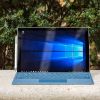 +16 +3
+16 +3Microsoft wants to win back the consumers it let down
Microsoft has a new plan to win back consumers after the company killed off hardware, software, and services and let some of its most loyal fans down
-
 +14 +1
+14 +1Microscopic trampoline may help create networks of quantum computers
A microscopic trampoline could help engineers to overcome a major hurdle for quantum computers, researchers from the University of Colorado Boulder and the National Institute of Standards and Technology (NIST) report in a new study. Scientists at JILA, a joint institute of CU Boulder and NIST, have developed a device that uses a small plate to absorb microwave energy and bounce it into laser light--a crucial step for sending quantum signals over long distances.
-
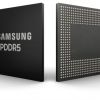 +14 +2
+14 +2Samsung Electronics Announces Industry’s First 8Gb LPDDR5 DRAM for 5G and AI-powered Mobile Applications
Samsung Electronics, the world leader in advanced memory technology, today announced that it has successfully developed the industry’s first 10-nanometer (nm) class* 8-gigabit (Gb) LPDDR5 DRAM. Since bringing the first 8Gb LPDDR4 to mass production in 2014, Samsung has been setting the stage to transition to the LPDDR5 standard for use in upcoming 5G and Artificial Intelligence (AI)-powered mobile applications.
-
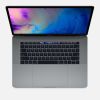 +13 +7
+13 +7Apple’s most expensive MacBook Pro now costs $6,700
Apple has updated its 13-inch and 15-inch Touch Bar MacBook Pros today with Intel’s latest eighth-generation chips. It’s also offering up to 32GB of RAM and 4TB of SSD storage — if you’re willing to pay for it. While the base models of Apple’s laptops still cost the same (starting at $1,799 for the 13-inch model or $2,399 for the 15-inch model), the updated MacBook Pro now tops out at a whopping $6,699 for the top configuration. That’s $2,400 more than the best 2017 MacBook Pro you could buy.
-
 +13 +3
+13 +3How suppliers of everyday devices make you vulnerable to cyber attack – and what to do about it
Malicious code or deliberate design faults can be inserted into everyday business products before they even leave the original manufacturer. Here's how you can protect yourself.
-
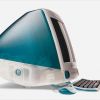 +14 +4
+14 +4Apple's game-changing iMac turns 20 years old
Apple's meteoric rise to the most valuable company in America can practically be traced back to one day. For much of the 1990s, Apple was slogging through an identity crisis. The company's first two home computers, the Apple II and the Mac, were falling out of favor, and Apple was losing serious ground to its competitors.
-
 +12 +2
+12 +2Chinese scientists break quantum computing world record
Chinese physicists have achieved quantum entanglement with 18 qubits, surpassing the previous world record of 10. This represents a step toward realizing large-scale quantum computing, according to a recent study published in the journal Physical Review Letters. Quantum entanglement is a phenomenon in which two or more entangled subatomic particles, or qubits, can theoretically affect each other simultaneously regardless of distance. The idea was so counterintuitive that Albert Einstein mocked it as "spooky action at a distance."
-
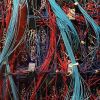 +10 +1
+10 +1Quantum leap in computer simulation
University of Melbourne physicists have successfully simulated a quantum computer faster than any real prototype in a key step to help us become quantum-ready.
-
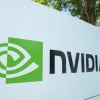 +19 +1
+19 +1Supercomputers: All Linux, all the time
The latest TOP500 Supercomputer list is out. What's not surprising is that Linux runs on every last one of the world's fastest supercomputers. What is surprising is that GPUs, not CPUs, now power most of supercomputers' speed.
-
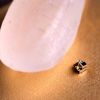 +16 +3
+16 +3World's tiniest 'computer' makes a grain of rice seem massive
You didn't think scientists would let IBM's "world's smallest computer" boast go unchallenged, did you? Sure enough, University of Michigan has produced a temperature sensing 'computer' measuring 0.04 cubic millimeters, or about a tenth the size of IBM's former record-setter. It's so small that one grain of rice seems gigantic in comparison -- and it's so sensitive that its transmission LED could instigate currents in its circuits.
-
 +8 +2
+8 +2The Universe Is Not a Simulation, but We Can Now Simulate It
Computer simulations have become so accurate that cosmologists can now use them to study dark matter, supermassive black holes, and other mysteries of the real evolving cosmos.
-
 +2 +1
+2 +1The Man Who COULD Have Been Bill Gates [Gary Kildall]
-
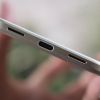 +6 +3
+6 +3It's 2018 and USB Type-C is still a mess
USB Type-C was billed as the solution for all our future cable needs, unifying power and data delivery with display and audio connectivity, and ushering in an age of the one-size-fits-all cable. Unfortunately for those already invested in the USB Type-C ecosystem, which is anyone who has bought a flagship phone in the past couple of years, the standard has probably failed to live up to the promises.
-
 +10 +2
+10 +2IBM, Nvidia Help U.S. Leapfrog China in Supercomputer Race
The U.S. has a new supercomputer and it’s twice as fast as the current record holder in China. International Business Machines Corp. developed the Summit computer, with help from Nvidia Corp., for the U.S. Department of Energy’s Oak Ridge National Laboratory. The system cost about $200 million to build, will occupy a warehouse the size of two tennis courts and be put to work on super-complex calculations that could lead to breakthroughs in fields from astrophysics to cancer research, the lab said in a statement Friday.
-
 +15 +3
+15 +3Why emergency braking systems sometimes hit parked cars and lane dividers
Recent Tesla Autopilot crashes hold a lesson for the whole industry.
-
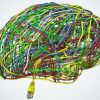 +17 +2
+17 +2Training a neural network in phase-change memory beats GPUs
Specialized hardware that trains in-memory is both fast and energy-efficient.
-
 +11 +1
+11 +1Color: a brand new extension by Firefox
Color everything!
1 comments by Gozzin -
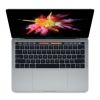 +5 +1
+5 +1Benchmarks hint at MacBook Pro with Intel's powerful six-core Core i7-8750H
A "MacBookPro14,3" device has appeared in Geekbench listings using Intel's Core i7-8750H processor, a part of the Coffee Lake family. The chip has a base clock speed of 2.21 gigahertz, slower than current Pros, but can boost up to 4.1 gigahertz and more crucially sports six cores — even a maximum-spec 2017-edition Pro is limited to four.
-
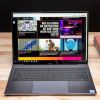 +6 +1
+6 +1Huawei’s new MateBook X Pro is the best laptop right now
There are many products that cross my desk for review, and very few of those products surprise me. I’ve been doing this for long enough that I can generally guess how a device is going to perform or work before it even gets to me. Huawei’s new MateBook X Pro is an exception. Even though the MateBook X Pro has a deep bench of specs and an eye-catching design, Huawei is not exactly an established brand in the laptop world. Prior Huawei laptops weren’t great, either...
Submit a link
Start a discussion




















